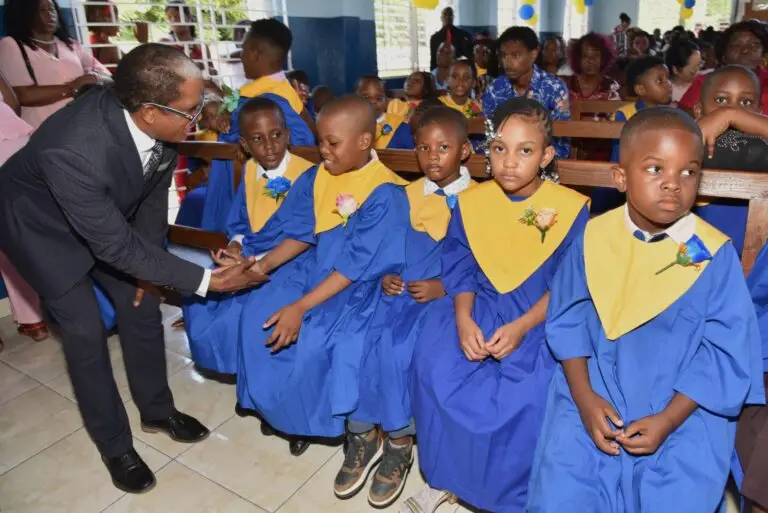Seventy-four youngsters who once entered the Ministry of Labour and Social Security’s Early Stimulation Programme (ESP) with developmental hurdles now stand ready for their next academic chapter.
At Wednesday’s transition ceremony inside Bethel Temple, downtown Kingston, 56 graduates were assigned seats in primary-level special-education classes, while 18 earned spots in mainstream schools—a testament to months of therapy, coaching and unrelenting family support.
Addressing the cohort, State Minister Dr Norman Dunn framed the moment as proof that “early intervention is the great equaliser,” arguing that the ESP exists to ensure ability outshines limitation. He saluted parents for “doing the heavy lifting at 2 a.m. and 2 p.m. alike” and applauded programme staff for engineering an ecosystem where progress is inevitable.
Corporate and NGO allies—Digicel Foundation, JSIF, National Commercial Bank Foundation, Food for the Poor and Guardian Life—were singled out for bolstering the ESP’s reach with funding, equipment and hands-on expertise.
Turning to the children, Dr Dunn’s charge was direct: “Hold fast to the confidence you’ve built here. When the world offers ceilings, be the generation that installs skylights.”
The ESP, the ministry’s flagship initiative for children from birth to age six, will now pivot to the next intake of families—armed with fresh evidence that timely, inclusive support can rewrite a child’s trajectory.

